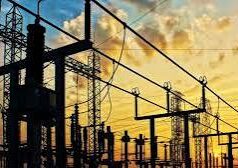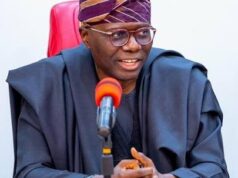
The Rural Electrification Agency (REA) has launched a 550kWp solar hybrid mini-grid project in the Bakin Ciyawa and Kwande communities within the Qua’an Pan Local Government Area of Plateau State, aimed at providing electricity to 3,500 households.
During the inauguration ceremony on Monday, it was revealed that approximately 20,000 communities across the country currently lack access to electricity.
Abba Aliyu, the Managing Director of REA, made this announcement, stating that the mini-grid projects are part of the interconnected mini-grid Accelerated Scheme, funded by an €11 million grant from the European Union and the German government to enhance electricity access in rural areas.
Representing Aliyu, REA Executive Director Doris Ugoh remarked, “The completion of this 550kWp interconnected mini-grid is a transformative development for the Bakin Ciyawa and Kwande communities. Bakin Ciyawa will benefit from a 390kWp system, while Kwande will have a 160kWp system.”
“Collectively, these systems will deliver clean and sustainable electricity to more than 3,500 households, as well as numerous micro, small, and medium enterprises.”
“The total funding we received exceeds 11 million euros, allocated based on the capacity requirements of each community. Over 60 percent of this project was funded by the EU and the German government.”
He noted that the Federal Government, through the Rural Electrification Agency (REA), has a comprehensive plan to supply renewable energy to rural communities nationwide.
“Under the current administration, we are electrifying a total of 3,700 communities, implementing this in phases. Each state will receive energy for 100 communities, resulting in a total infusion of 370MW of clean energy.
“The initial phase will focus on 25 communities per state, amounting to 925 communities across the country, with over 92MW of clean energy being added to our energy grid.”
He noted that “one of the most significant advantages of these solar mini-grids is their positive impact on the environment. By substituting traditional fossil fuel energy sources like diesel generators and kerosene, these mini-grids are making a substantial reduction in carbon emissions.
The 550kWp system installed in Bakin Ciyawa and Kwande is projected to cut down approximately 600 tons of CO2 emissions each year. This reduction is comparable to removing around 130 cars from the roads or planting about 15,000 trees annually. Such decreases are vital for combating climate change and advancing towards a more sustainable future for Nigeria.”
He emphasized that while some communities are striving to upgrade to the scale of the project, 10,000 communities have already been identified, “while over 20,000 communities across the country still lack electricity.”
Jigawa is collaborating with the REA on a 1000MW solar initiative aimed at electrifying 100 villages. He mentioned that safeguarding the project would motivate the agency to expand its efforts.











